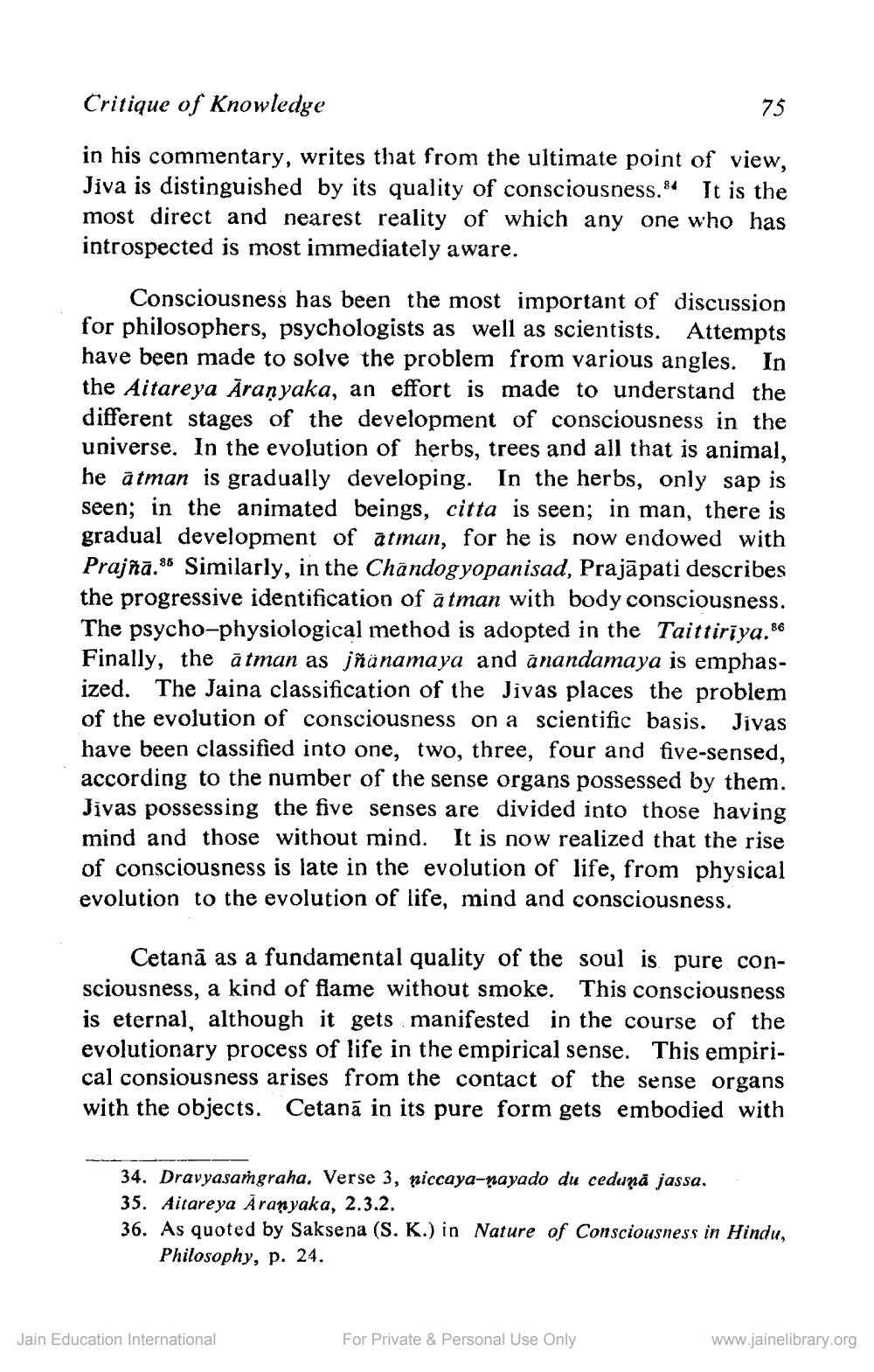________________
Critique of Knowledge
75
in his commentary, writes that from the ultimate point of view, Jiva is distinguished by its quality of consciousness.84 It is the most direct and nearest reality of which any one who has introspected is most immediately aware.
Consciousness has been the most important of discussion for philosophers, psychologists as well as scientists. Attempts have been made to solve the problem from various angles. In the Aitareya Aranyaka, an effort is made to understand the different stages of the development of consciousness in the universe. In the evolution of herbs, trees and all that is animal, he ätman is gradually developing. In the herbs, only sap is seen; in the animated beings, citta is seen; in man, there is gradual development of atman, for he is now endowed with Prajñā.85 Similarly, in the Chandog yopanisad, Prajāpati describes the progressive identification of a tman with body consciousness. The psycho-physiological method is adopted in the Taittiriya.86 Finally, the ātman as jñanamaya and anandamaya is emphasized. The Jaina classification of the Jivas places the problem of the evolution of consciousness on a scientific basis. Jivas have been classified into one, two, three, four and five-sensed, according to the number of the sense organs possessed by them. Jivas possessing the five senses are divided into those having mind and those without mind. It is now realized that the rise of consciousness is late in the evolution of life, from physical evolution to the evolution of life, mind and consciousness.
Cetanā as a fundamental quality of the soul is pure consciousness, a kind of flame without smoke. This consciousness is eternal, although it gets manifested in the course of the evolutionary process of life in the empirical sense. This empirical consiousness arises from the contact of the sense organs with the objects. Cetanā in its pure form gets embodied with
34. Dravyasangraha, Verse 3, niccaya-nayado du cedunā jassa. A 35. Aitareya Aranyaka, 2.3.2. 36. As quoted by Saksena (S. K.) in Nature of Consciousness in Hindu,
Philosophy, p. 24.
Jain Education International
For Private & Personal Use Only
www.jainelibrary.org




